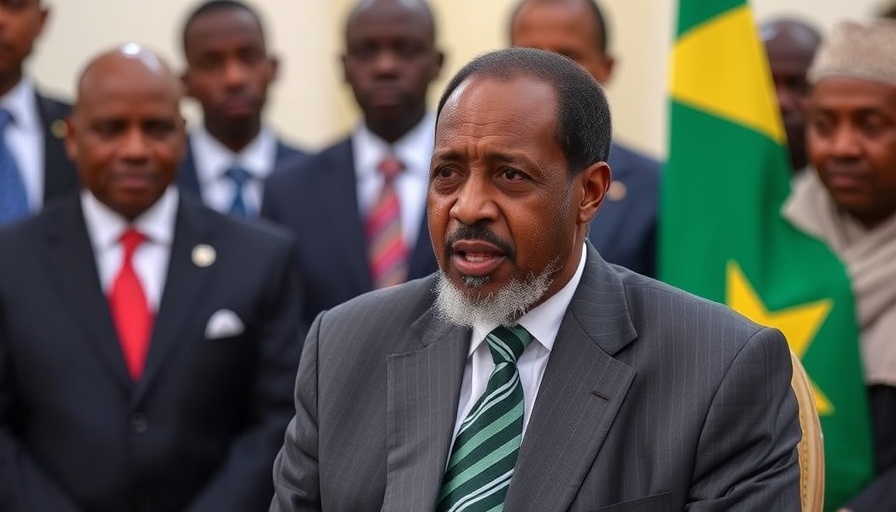
Surviving the Storm: President Mohamud's Assassination Attempts
In a stark testament to the precarious situation in Somalia, President Hassan Sheikh Mohamud revealed that he has survived six assassination attempts orchestrated by the al-Shabaab terrorist group since his presidency began in 2012. These ongoing threats illustrate not just the persistent violence in Somalia but also the government's resolve in confronting these challenges head-on.
Recent Attacks and Implications for Governance
The latest assault on President Mohamud's life occurred on March 18, 2025, when his convoy was targeted with improvised explosive devices (IEDs) in Mogadishu. This attack coincided with his plans to visit Somali troops engaged in combat against the militants. His determination to continue leading the fight, despite being a target, speaks volumes about his commitment to national stability and security.
Ideological and Financial Warfare Against Al-Shabaab
During an interview, President Mohamud emphasized that the fight against al-Shabaab is currently being waged on ideological and financial fronts. He has engaged over 300 prominent Islamic scholars to challenge the group's narrative, aiming to unveil how their extremist ideology contradicts the core teachings of Islam. Additionally, efforts to cripple al-Shabaab's financial resources, including closing their bank accounts and monitoring mobile cash transactions, reflect a multifaceted strategy aimed at undercutting their operational capabilities.
Moving Forward: Looking to the Future
Despite the assaults and setbacks faced, President Mohamud insists progress is being made in dismantling al-Shabaab's influence. His administration's focus on both military actions and grassroots ideological battles indicates a comprehensive strategy that intertwines immediate security concerns with longer-term societal healing and educational efforts. As international observers note, Somalia's trajectory in tackling terrorism not only impacts its internal politics but also serves as a focal point for global trade and security concerns in the Horn of Africa.
The Significance of Somalia's Struggle on the Global Stage
The implications of Somalia’s continued conflict under President Mohamud's leadership extend far beyond its borders. Global policymakers, especially those invested in Africa’s economy and security dynamics, are closely watching how the Somali government's actions could reshape regional stability. Increased instability threatens investment in Africa, making Somalia’s progress crucial for trade relations and geopolitical stability. As global interest in Africa’s emerging markets grows, the success or failure of leaders like Mohamud will have far-reaching consequences.
Conclusion: The Call to Action for Global Stakeholders
For business leaders and policymakers in Africa and beyond, the ongoing situation in Somalia underscores the importance of stable governance in creating an environment conducive to trade and investment. The global perspective on Africa's development hinges on the outcomes of such conflicts and the resilience of leaders like President Mohamud in overcoming adversity. Stakeholders are encouraged to engage in partnerships that support peace-building initiatives, which are essential for the growth of the African economy.
 Add Row
Add Row  Add
Add 


Write A Comment